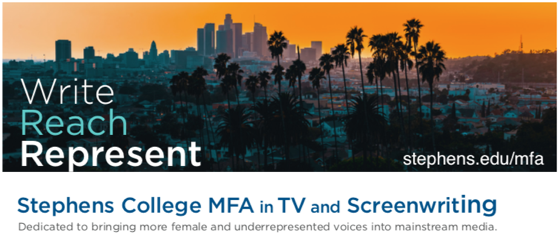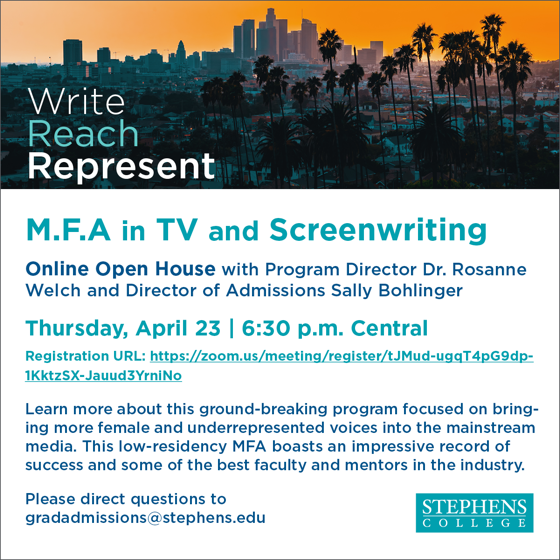Watch this entire presentation
Subscribe to Rosanne’s Channel and receive notice of each new video!
Transcript:
Marion Wong was a Chinese-American woman who made films in the early era in San Francisco. You won’t see her in many books. These ladies were also writers in the early days and I think that we’ll find out more about them in the future because they were connected to other important United States people like President Ulysses S. Grant but no one’s done a lot of research on them. No one has found that of interest yet. It’s just becoming a new thing for us.
A Note About This Presentation
A clip from my keynote speech at the 10th Screenwriters´(hi)Stories Seminar for the interdisciplinary Graduation Program in “Education, Art, and History of Culture”, in Mackenzie Presbyterian University, at São Paulo, SP, Brazil, focused on the topic “Why Researching Screenwriters (has Always) Mattered.” I was especially pleased with the passion these young scholars have toward screenwriting and it’s importance in transmitting culture across the man-made borders of our world.
To understand the world we have to understand its stories and to understand the world’s stories we must understand the world’s storytellers. A century ago and longer those people would have been the novelists of any particular country but since the invention of film, the storytellers who reach the most people with their ideas and their lessons have been the screenwriters. My teaching philosophy is that: Words matter, Writers matter, and Women writers matte, r so women writers are my focus because they have been the far less researched and yet they are over half the population. We cannot tell the stories of the people until we know what stories the mothers have passed down to their children. Those are the stories that last. Now is the time to research screenwriters of all cultures and the stories they tell because people are finally recognizing the work of writers and appreciating how their favorite stories took shape on the page long before they were cast, or filmed, or edited. But also because streaming services make the stories of many cultures now available to a much wider world than ever before.
Many thanks to Glaucia Davino for the invitation.
* A portion of each sale from Amazon.com directly supports our blogs
** Many of these books may be available from your local library. Check it out!
† Available from the LA Public Library
Podcast: Play in new window | Download
Subscribe: RSS
![11 Marion E. Wong & Jennie Louise Toussaint from Why Researching Screenwriters (has Always) Mattered [Video] (27 seconds)](https://rosannewelch.com/wp-content/uploads/2020/05/rmw-sao-paolo-11.jpeg)
![Watch Now: Creative Career Kickstart: Catching and Pitching Panel – ASU Film Spark Program [Video] (1 hour 15 minutes)](https://rosannewelch.com/wp-content/uploads/2020/05/asu-film-spark-logo.png)
![Creative Career Kickstart: Catching and Pitching Panel - ASU Film Spark Program [Video] (1 hour 15 minutes)](https://rosannewelch.com/wp-content/uploads/2020/05/asu-fim-spark.png)
![10 Oscar Micheaux from Why Researching Screenwriters (has Always) Mattered [Video] (43 seconds)](https://rosannewelch.com/wp-content/uploads/2020/05/rmw-sao-paolo-10.jpeg)
![Learn More About the Stephens College MFA in TV and Screenwriting with this Open House Session [Video]](https://rosannewelch.com/wp-content/uploads/2020/05/mfa-open-house.jpg)
![09 Susan Y. Mason from Why Researching Screenwriters (has Always) Mattered [Video] (47 seconds)](https://rosannewelch.com/wp-content/uploads/2020/05/rmw-sao-paolo-09.jpeg)
![08 Jeannie Macpherson from Why Researching Screenwriters (has Always) Mattered [Video] (1 minute 3 seconds)](https://rosannewelch.com/wp-content/uploads/2020/05/rmw-sao-paolo-08.jpeg)



![07 Storytelling And Unreliable Narrators from Why Researching Screenwriters (has Always) Mattered [Video] (1 minute 30 seconds)](https://rosannewelch.com/wp-content/uploads/2020/04/rmw-sao-paolo-07.jpeg)

![06 Stories Are Important! from Why Researching Screenwriters (has Always) Mattered [Video] (51 seconds)](https://rosannewelch.com/wp-content/uploads/2020/04/rmw-sao-paolo-06.jpeg)